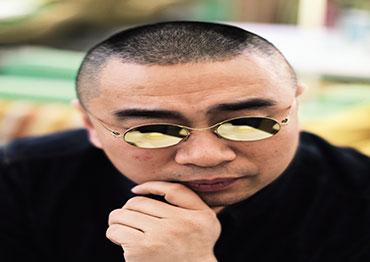Since the 2000s, Wang shifted his focus to online shopping. “Consumers were a lot more tolerant of online sellers back then. But fakes are fakes no matter where they’re sold. As long as there’s buying and selling, it’s very simple – sales should be transparent and fair everywhere,” he said.
In 2006, Wang reported Hangzhou-based tech giant Alibaba to the commerce and industry bureau of Zhejiang Province, where the e-commerce giant is headquartered. He filed five violations against Alibaba’s Taobao, China’s earliest and largest online shopping platform. The charges he leveled at them included false advertising, not requiring sellers to provide proof of purchase, turning a blind eye to fraud and illegal sales, and advertising fakes and low-quality products.
Taobao accused Wang of never using the platform and not understanding how online shopping works. Several months later, however, Taobao announced a 100 million-yuan (US$14.7m) campaign to fight the sales of fakes on the platform. In 2011, Taobao pledged another 200 million yuan (US$29.4m) to protect consumer rights.
Wang said that livestreaming provides an easier channel to peddle fakes, since sales often depend on celebrities who do not always perform due diligence. “Livestreaming can’t stand up to scrutiny,” Wang said. “The industry depends on faking it: fake personas, fake brands... even the discounted prices they claim to offer are not real discounts.”
In addition to Xin, Wang exposed businessman and key online influencer Luo Yonghao for selling fake wool sweaters and fake Britishbranded mouthwash. Luo, according to Wang, allegedly used photos of actors and claimed they were industry experts. Luo made a public apology and compensated his customers.
Wang was also a target for lawsuits. In 2014, he was sued by a traditional Chinese medicine (TCM) supplier for claiming their product did not function as advertised. A court in Qinghai Province, where the company was based, ruled in favor of the supplier, saying that Wang provided no evidence proving his allegation. The court found Wang guilty of defamation, requiring him to delete all posts about the company from his social media and pay 12,100 yuan (US$1,780) in compensation.
“Evidence is crucial, or the sellers will take any chance to counterattack you,” he told NewsChina. Wang now has staff perform detailed background checks and tests on all products before taking his cases public.
With 25 years of experience in the consumer rights game, Wang has learned to choose his battles more carefully. “Take fake cigarettes for example. Some villages survive on making fake cigarettes and will prevent their practices from being exposed at all costs... We won’t pursue such cases without local police support. We are not willing to risk our employees’ lives,” he said.
Costs and benefits are major considerations. “We wouldn’t target a street vendor who, for example, claims their roast chestnuts are the ‘best in the world.’ That is meaningless. We must consider whether the seller can afford to pay compensation,” he said.
This approach has been a point of criticism in the past. Wang was called “ruthless” online for posting that he charged clients 50 percent of their compensation payouts. In a widely circulated online commentary in November, blogger “Da’erbudang” condemned Wang’s for-profit advocacy and alleged that he had blackmailed vendors for hush money.
Wang said that while he must fund his work, he prioritizes social benefits. Wang described how his team’s undercover investigations into 20 private clinics in 1998 led local authorities to crack down on medical fraud and unlicensed clinics. “Before our investigations, I predicted that it might cost us 200,000 yuan (US$29,412). I thought I could afford it, so I did it... If I had gone over budget, I would have stopped,” he told NewsChina.
However, fraud at private hospitals and clinics soon rebounded and went unchecked for years until a case in 2016, when 21-year-old Wei Zexi died of soft-tissue cancer. Before his death, Wei posted online that the private hospital he turned to had used obsolete treatments and delayed his recovery.
When asked whether he had regrets about not fully eradicating fraud at private hospitals, Wang paused. “We had different expectations for each case... All we could do with those clinics was expose them,” he said.
“What we are pursuing is actually limited justice. We have to be rational and face the fact that with limited resources in hand, that was all we could pursue,” he added.
Wang owns four consulting companies in Beijing, Tianjin, Nanjing in Jiangsu Province and Shenzhen in Guangdong Province that focus on compensation cases against larger vendors and platforms, helping consumers protect their rights and aiding enterprises to take action against manufacturers. Wang told media that he sees several million yuan in profit annually.
“I don’t fight fakes, I fight fraud,” he told NewsChina. “Fraud hasn’t changed in China over the past 25 years. They use the same old tricks and the same old ways... It’s the channels that have changed,” he said.
“Even consumers haven’t changed. Many of them remain ignorant and ripe for the picking,” he continued. Wang cited the wool sweaters Luo Yonghao sold for 79 yuan (US$12) each as an example. Factoring in total commissions and logistics costs, the factory price should be between 30 and 40 yuan (US$4.4-5.8). This is a tell that the sweaters are not real wool. However, most consumers did not trust their common sense. Instead, they trusted a celebrity. “That’s why I say that sometimes hunting fakes is so easy that you don’t even need to test them.”
Wang claimed that thousands of netizens from across the country contacted him seeking help in filing fraud claims following Xin Youzhi’s case. He is having trouble keeping up. “I hope everyone comes out to fight fakes... unified efforts would spur improvements in the quality of Chinese products and services. When that happens, I will no longer be needed,” he said.

 Old Version
Old Version
